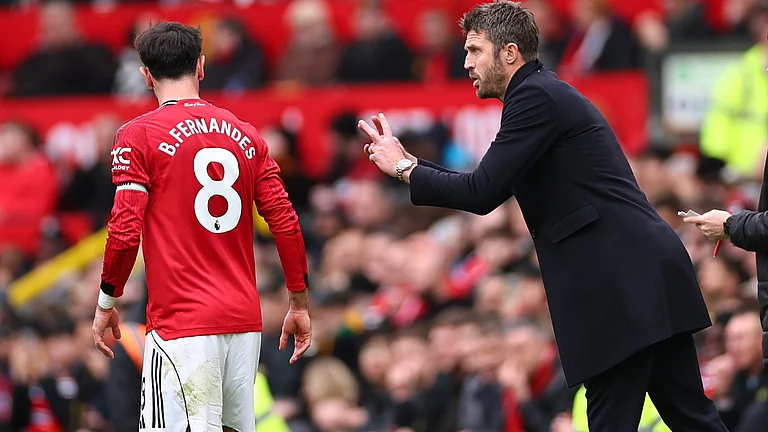That day, dozens of holiday-makers captured horrifying images of the tsunami using their ‘handycam’ video cameras, making it probably the most widely filmed natural disaster in history. They just happened to be at the wrong place at the wrong time—yet decided to keep their cameras rolling. TV networks and professional journalists arrived at the scene hours later—and had to ‘borrow’ amateur footage to tell the story.
Even after hordes of journalists and camera crews had reached the disaster’s multiple locations, concerned ordinary people offered first-hand narratives and personal perspectives to a world anxiously following the unfolding humanitarian crisis. Relief workers, volunteers and other public-spirited individuals turned to the internet and offered their own personal web logs. These ‘blogs’ developed a wide following among those who wanted a counterpoint to the fleeting coverage—or helicopter journalism—that was coming out in much of the mainstream media.

Even though these were triumphs of information and communications technologies (ICT) in such circumstances, let’s not get carried away too much. The tsunami also reminded us how vulnerable our information society is. When electricity and telephones—both fixed and mobile—failed in the worst affected areas, it was a century-old technology that came to the rescue: amateur radio enthusiasts restored the first communication links with the outside world, sometimes using Morse code to save power on the car batteries they tapped. Courageous and resourceful radio hams were at the forefront of relief efforts in the Andaman and Nicobar Islands in India, Hambantota in Sri Lanka and other locations. We may never know how many lives they saved or how many minds they put at ease, but we owe a debt to Marconi’s faithful followers. As the president of the Radio Society of Sri Lanka remarked, "When all else is dead, short wave is alive."
Beyond Expectations
Talking about the future of media—and journalism—at a time of rapid change can be foolhardy, if not outright hazardous. Even if we outline the limits of the possible, it is difficult to guess when these developments might take place. For example, when I proposed the idea of a geostationary communications satellite 60 years ago (in Wireless World, October 1945), I imagined it would be done in a few decades. It took only two. We, as a species, have a deep urge to communicate—so if something is technologically feasible, we will pursue it sooner rather than later. Virtually everything we wish to do in the field of communications is now technologically possible. The only limitations are financial, legal or political. In time, I am sure, most of these will also disappear—leaving us with only limitations imposed by our own morality. How we shape the networked world of the future lies entirely in our hands.
And that’s an awesome responsibility—one that we have not exercised very well in the last century. For example, we have long known the power of television to educate, inform, entertain and even inspire. However, this is not immediately self-evident when we surf the bewildering array of channels now available—much of television, indeed, deserves to be called the ‘Great Wasteland’. But I am not impressed by the attacks on television because of the truly dreadful programmes that it sometimes carries. I believe that every TV programme has some educational content: the cathode ray tube is a window to the world—indeed, to manyworlds. Often it may be a very murky window, but I’ve slowly come to the conclusion that, on balance, even bad TV is preferable to no TV at all.
End of an era?
So let’s agree on some bottomlines here. Whether we like it or not, we live in a media-driven world: if all the presses in the world stopped rolling and the airwaves suddenly fell silent, the world as we know it will cease to exist. The various forms of mass media are necessary to create a well-informed, empowered society—but they are no longer sufficient.
The American writer A.J. Leibling once said, "Freedom of the press belongs to those who own one." This was very much the case—until recently. In theory, at least, the internet now enables everyone who owns a computer to have her own ‘printing press’ and ‘broadcast station’.
Historically, organised and commercialised mass media have existed only in the past five centuries, since the first newspapers—as we know them—emerged in Europe. Before the printing press was invented, all news was local and there were few gatekeepers controlling its flow. Having evolved highly centralised systems of media for half a millennium, we are now returning to a second era of mass media—in the true sense of that term. Blogs, wikis and citizen journalism are all signs of things to come.
This has far-reaching implications. For one thing, it allows far higher levels of interactivity and audience engagement than has been possible in newspapers, radio or television. Even more importantly, the web provides a platform for small-time companies, organisations and single individuals to disseminate ideas, analyses and viewpoints to a potentially global audience. And it can be done at a fraction of the cost of launching mainstream media outlets. While the web is not yet a level playing field and has its own limitations, it has already triggered the end of absolute power enjoyed by press barons and gatekeeper editors.

Nowhere is this breach more apparent than in the remarkably swift rise of bloggers. Their publishing of online diaries has shown how passionate individuals can command attention and influence way beyond their professional or social circles. John Naughton, a noted British chronicler of the new media, says the web has again demonstrated its capacity to unleash disruptive innovation on a complacent establishment. As he wrote in 2003, "The response of the ‘professional’ media to this explosion has been interesting. First there was patronising incredulity that people would write without being paid for it. Then there was disdain. ‘Where’, asked the hacks, ‘was the quality control?’ Surely the whole thing was just an epidemic of vanity publishing. Then there was unease, fuelled by the realisation that (a) large numbers of bloggers were talking to one another behind the media’s back, as it were, and (b) some of them knew more about many subjects than most journalists. Badly researched or ideologically skewed reporting was being instantly skewered by bloggers...."
Naughton has documented many instances where poor journalism about highly technical or complicated issues was exposed by bloggers. The Columbia space shuttle disaster was one, where half-baked journalistic theories were effortlessly demolished by bloggers with serious aerospace expertise.
The blogging community has refused to accept the news ‘agenda’ as determined by the mainstream media. As Naughton says, "This has been increasingly evident since 9/11 as the established US media have dumbed down their discussion of the issues surrounding security, civil liberties and Bush’s policy towards Iraq. It would not be much of an exaggeration to say that (with a few honourable exceptions) most of the serious discussion of these issues in the US at the moment is happening in weblogs and not in the ‘official’ mass media."
It’s too soon to tell how much and how far bloggers could act as a countervailing force for the lapses and excesses in the mainstream media not just in the US, but across the world. We can only hope that the bloggers will push the mainstream to embrace long overdue reforms to become more transparent and accountable—the very virtues that editorialists constantly preach to the world’s governments and corporations.
An open moment
The new era of citizen journalism—inspired by the proliferation of ICTs—is only just beginning. It represents an open moment for free flow of information and good journalism: if we seize the moment, it can help us to reclaim the public interest that has been sidelined or forgotten by most sections of commercialised media.
In We Media: How Audiences are Shaping the Future of News and Information, Shayne Bowman and Chris Willis define citizen journalism as the act of citizens "playing an active role in the process of collecting, reporting, analysing and disseminating news and information". As they say, "The intent of this participation is to provide independent, reliable, accurate, wide-ranging and relevant information that a democracy requires."
These are the qualities that we expect—and once took for granted—in the mainstream media. But as my friend and former cbs news anchor Walter Cronkite commented about the US media, assorted pressures have increased in recent years, threatening the fabric of editorial integrity and independence. He adds: "Corporate censorship is just as dangerous as government censorship...and self-censorship can be the most insidious form of pulling punches. Pressures to go along, to get along, or to place the needs of advertisers or companies above the public’s need for reliable information distort a free press and threaten democracy itself."
There is no guarantee, of course, that citizen journalism will be free of biases. But as the wiki—another new tool of the web—has proved, the simultaneous participation of many can be a good self-correcting mechanism. For example, there were initial fears that the Wikipedia—the free, online encyclopaedia developed by thousands of contributors worldwide—might peddle half-truths or untruths. Studies have shown how accuracy and moderation are quickly restored even when an occasional extremist entry is attempted.
But will citizen journalism survive and thrive in the harsh marketplace? The answer to that question lies in our hands—let us not underestimate the power of the discerning media consumer to set new trends (and not forget how mass indifference kills many innovations).
A demonstration that it is indeed possible to do—engage in good citizen journalism and still do well commercially—comes from South Korea, the most highly-networked country. Five years ago, journalist Oh Yeon-Ho started a web paper called OhmyNews (www.ohmynews.com). His philosophy was simple: "Every Citizen is a Reporter." It now has a staff of some 40 traditional reporters and editors—but they write only about one fifth of its content. The rest is generated by thousands of freelance contributors, most of them with no formal journalistic training.
As newspaper circulation dropped by a third since 2000, OhmyNews has emerged as one of the most influential news and information sites in South Korea—with more than 7,50,000 unique users per day. It is also transforming the country’s conservative political environment. The site was widely credited with influencing the election of President Roh Moo-hyun; he gave his first post-election interview to OhmyNews. The protest rallies that came with Roh’s impeachment trial were covered in great detail—through text, photography and video—by dozens of citizen reporters.
Developments like these can no longer be dismissed as curious experiments and press barons are takingnote. Addressing the American Society of Newspaper Editors in New York earlier this year, Rupert Murdoch acknowledged the challenge his industry now faces. He said: "Like many of you in this room, I’m a digital immigrant. I wasn’t weaned on the web, nor coddled on a computer. Instead, I grew up in a highly centralised world where news and information were tightly controlled by a few editors, who deemed to tell us what we could and should know. My two young daughters, on the other hand, will be digital natives. They’ll never know a world without ubiquitous broadband internet access."
There is more than just a generation gap that separates the mainstream media from the increasingly influential online media. It will be interesting to see how Rupert repositions his News Corporation to meet these realities. Meanwhile, let us not write off the mainstream media—it has survived and adapted to many changes in both technology and the marketplace.
Yet one thing is clear: the age of passive media consumption is fast drawing to an end. There will be no turning back on the road from Citizen Kane to citizen journalist.
(The world’s best known writer of science fiction, Sir Arthur C. Clarke has published over 100 books, and over a thousand essays and short stories. One of his short stories inspired the World Wide Web. Sir Arthur thanks Nalaka Gunawardene for his support in writing this essay.)


























